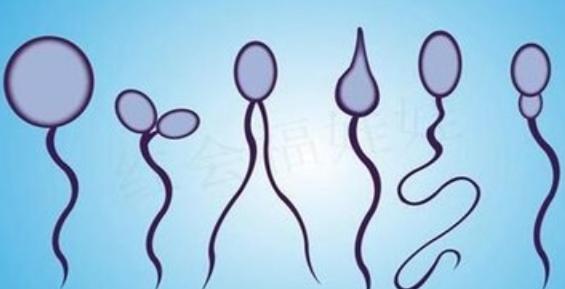Ways to Improve Sperm Vitality in Patients with Asthenospermia
Date:2022-11-18 click:0
In today's society, numerous infertility phenomena are caused by male sperm quality problems, causing many problems for many young men. One main disease that causes sperm problems is asthenospermia. As the name implies, asthenospermia means a man has poor sperm vitality. For patients with poor sperm vitality, if they want to solve the problem of infertility, they must find ways to improve the vitality of sperm so that they can improve the chances of conception in women.

The determination of asthenospermia requires scientific testing of male semen routine. Specifically, asthenospermia is a disease in men whose semen has less than 50% of the sum of grade A sperm and grade B sperm moving forward or less than 25% of grade A sperm (where grade A sperm indicates good sperm motility and straightforward motion; grade B indicates average sperm motility and forward curvilinear motion; and grade C indicates poor sperm motility and only creeping in place). Sperm motility function or the strength of motility is directly related to human reproduction, so men with asthenospermia should pay attention to it.
So, what are the ways to improve sperm vitality in patients with asthenospermia?
1. It is essential to make an active self-test for symptoms of urinary tract infections and treat them aggressively.
Professional doctors say that the pathogenic factors of urinary system infections can reduce the motility of sperm, which may induce asthenospermia. Therefore, patients with reproductive system infections should be actively treated and can take the natural herbal medicine Diuretic and Anti-inflammatory pill, which has significant clinical treatment effects for urinary system infections such as prostatitis, epididymitis, asthenospermia, oligospermia, and male infertility.
2. Zinc and selenium supplementation
Asthenospermia patients must pay attention to their diet and eat more foods containing zinc and selenium daily, such as shellfish, lean meat, eggs, animal liver, and vegetables.
3. Moderate sex life
Abstinence or indulgence is not good for sperm production. Only regular sex is good for metabolism. It is recommended to have sex 2 to 3 times a week; this frequency can improve the activity of sperm and prevent asthenospermia.
4. Active engagement in exercise
Being sedentary will lead to a decline in sperm quality, and appropriate physical exercise can promote blood circulation throughout the body to further improve the activity of sperm, especially some aerobic exercise is helpful for sperm production.
5. Staying away from radiation
Although the cell phone and computer radiation are not very large, the accumulation of radiation in months will still affect the vitality of sperm. When men put their cell phones in their pants pockets or computers on their laps, they are more likely to have asthenospermia.
6. Avoidance of the high-temperature environment
Men must avoid contact with high-temperature environments to prevent asthenospermia because the testicles are particularly afraid of high temperatures. Thus, behaviors like saunas and hot baths are the least recommended. In addition, men who are chefs or outdoor workers in the heat should properly cool themselves down. Otherwise, it is easy for them to get asthenospermia.
7. Quitting smoking and drinking.
Data shows that 44% of people believe that smoking is the most important factor in the decline of sperm count. Cigarette nicotine can kill sperm, cause sperm stunting and deformities, and affect sperm motility. Alcohol can damage the development of sperm and embryos, and long-term heavy drinking can cause reduced fertility, slow testosterone synthesis, and affect the normal metabolism of testosterone, causing men to have sparse semen and low reproductive function.
8. Relaxing the mind and avoiding excessive stress.
Modern life is fast-paced, stressful, and competitive, and people are often in a state of fatigue. This will seriously affect the nervous system and endocrine function, resulting in testicular sperm production dysfunction and low sperm vitality.
You may also be interested in:



